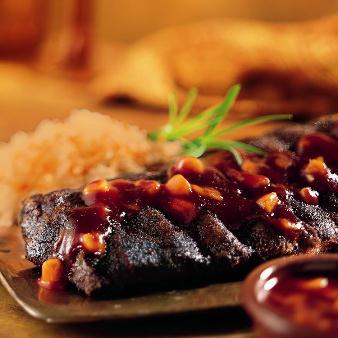American Regionalism, Consumer Control and More
04 January 2012
 Mintel predicts five foodservice trends that will shape restaurant menus in 2012.
Mintel predicts five foodservice trends that will shape restaurant menus in 2012.
Competition in the foodservice industry is always fierce, and restaurant chains are constantly jockeying for business, money and attention in an overcrowded marketplace. In 2012, however, five trends outlined by Mintel Menu Insights will shape how operators appeal to their customers with regional and imported menu options, double-sided menus, customization and time-intensive preparation methods.
Eric Giandelone, foodservice director at Mintel, notes the following: “Our trends are designed to give both restaurant operators and food suppliers a thorough understanding of what’s coming in the foodservice industry. Our trends are based on original consumer research, developments among restaurants and trends observed in other industries. Our goal with these trend predictions isn’t merely to identify what’s going to happen, but to deliver a roadmap on how to take advantage of these trends.”
Here are five trends that will impact the foodservice industry in this year:
American regionalism. Consumers are not only more aware of global cuisine, they are also more aware and interested in the regional specialties that define American cuisine. Whether it’s Kansas City or Memphis barbecue, New England chowder or Low Country grits, more consumers and restaurants are looking at the regions and cities in the United States to identify the “Best of” cuisine.
Double-sided menus. It’s unlikely that consumers are going to start demanding absolutely healthy menus in the near future and even less likely that restaurants are going to solely list these absolutely healthy options. However, consumers want choices, and the Double Sided Menu trend illustrates that choice. Menus will continue to feature widely indulgent options, but will be balanced with healthier, better-for-you options. Additionally, this goes beyond healthy and indulgent to include premium and value pricing. Operators understand it’s not either/or, it’s both, so we’ll continue to see both high-priced and low-priced options on the same menu.
Consumer control. Consumers expect that their voice will be heard and that their wants and needs will be met. And the surest way to listen to the customer and ensure their needs are met is to give them the ability to control their dining experience. Customized ordering systems will continue to flourish, as will greater flexibility in menu design.
Slow it down. Quick-service restaurants are able to drive margins through their standardized efficiencies, but more and more we are seeing fast-food restaurants return to more time-intensive preparation methods. As such, items described as “handmade” or “home style” are popping up on restaurant menus as consumers recognize that they want more from their dining experience than efficiency.
Importing ideas. For many restaurant chains, growth lies elsewhere, in international markets. And for those companies already with an international presence, menu concepts and product testing is taking place overseas. From there, good ideas are making their way to the U.S. market, as was the case with McDonald’s recent McBites, which launched in Australia. Given the importance of international markets for growth, this is one trend that will continue to grow beyond this year.
Photo: Baby-back ribs seasoned with a combination of rich coffee and warm spices and topped with spicy Mexican-inspired BBQ sauce, from Kevan Vetter, executive chef for McCormick For Chefs, speaks to the demand among consumers for regional specialties that define American cuisine. View recipe here.
